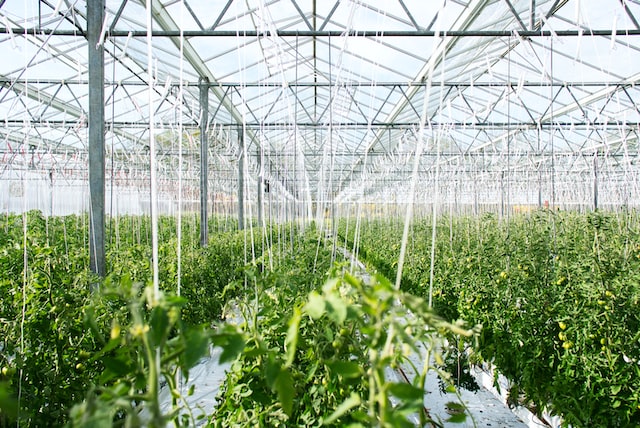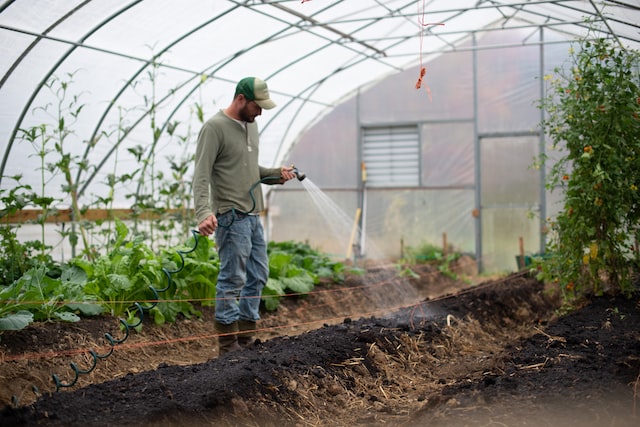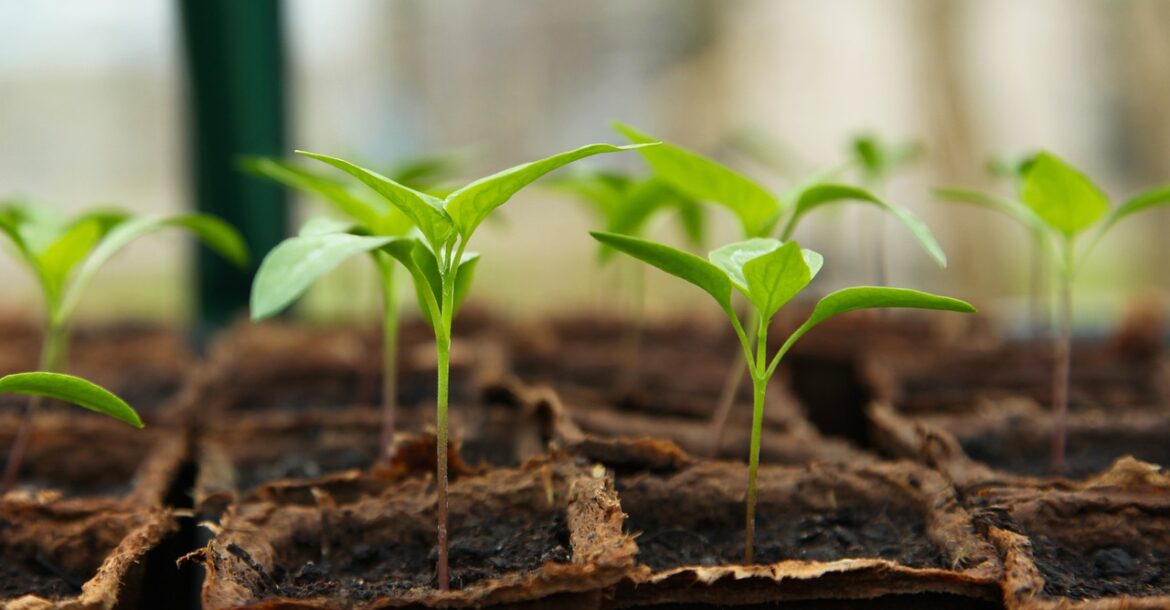Garden Improvement
Can You Grow Organically In A Greenhouse?
Similar to our previous blog about what foods can you grow in a greenhouse, in this post I want to explore growing organic; whether it’s possible to do at home, and if it’s worth it.
The demand for organic fruits and vegetables has been on the rise in recent years, with more and more people opting for organically grown produce. Organic farming involves using natural methods to grow crops without the use of synthetic fertilisers, pesticides, or genetically modified organisms. But can you grow organically in a greenhouse? In short, the answer is yes, and here are some tips and ideas for doing so yourself at home.

- Use organic soil: The foundation of any successful organic garden is healthy soil. Choose organic soil that is free of synthetic fertilisers, pesticides, and other harmful chemicals.
- Start with organic seeds: When selecting seeds for your greenhouse, choose organic options. These seeds are free of harmful chemicals and genetically modified organisms and will produce healthy, organic crops.
- Implement companion planting: Companion planting involves growing different plants together that benefit one another. For example, planting marigolds alongside your tomatoes can help deter pests while attracting beneficial insects like bees and butterflies.
- Use natural pest control methods: Instead of using synthetic pesticides to control pests, try natural methods like introducing beneficial insects such as ladybugs or using neem oil. You can also use physical barriers like netting or row covers to protect your plants from pests.
- Consider adding a compost bin: Composting is a great way to add nutrients to your soil naturally. Consider adding a compost bin to your greenhouse to recycle your kitchen and garden waste and create nutrient-rich soil for your plants.
- Use natural fertilisers: Instead of synthetic fertilisers, opt for natural options like compost, fish emulsion, or worm castings to nourish your plants. These natural fertilisers are gentle on the environment and will promote healthy, organic growth.
- Manage humidity and temperature: Greenhouses can be prone to high humidity and temperature fluctuations, which can create the perfect environment for pests and diseases. Make sure to monitor the temperature and humidity levels in your greenhouse and use proper ventilation to maintain a healthy environment for your plants.
- Practice crop rotation: Crop rotation involves planting different crops in different areas of your greenhouse each year to prevent the buildup of pests and diseases in the soil. This will help maintain a healthy, organic garden for years to come.
- Use natural weed control methods: Instead of using harmful chemicals to control weeds, try natural methods like mulching or hand weeding. These methods will help keep your garden free of weeds without introducing harmful chemicals to the environment.

If you’re stuck for ideas on what type of veg to start growing organically first, GreenhouseReviews.co.uk have collated a handy list of popular veg to grow organically. But in truth, really anything that you can grow normally can be grown organically. As long as you can get hold of the organic seeds to start you off. Then the rest is all down to sticking with organic growing practices like the ones in our guide above.
In conclusion, growing organically in a greenhouse is entirely possible with the right approach and mindset. By using natural methods like organic soil, seeds, and fertilisers, implementing companion planting and natural pest control methods, and managing humidity, temperature, and weed control, you can create a healthy, organic garden in your greenhouse. Not only will this provide you with fresh, organic produce, but it will also promote a healthier and more sustainable environment for all.






